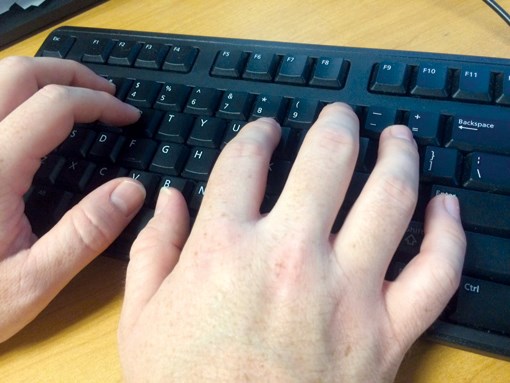Parents of two students who attend West Vancouver public schools say the end of the school year was marred for their kids by incidents of cyber-bullying they say school authorities aren’t taking seriously enough.
In the first incident, a teenager from a Jewish family was sent texts containing anti-Semitic comments referring to concentration camps and gas chambers by two 14-year-old classmates.
Eduard Bruk, the teen’s father, said his son – an accomplished soccer player who recently took part in a fundraising walk for Syrian refugees – was subjected to anti-Jewish comments from the teens after he posted a picture of himself on Instagram.
Bruk said the teens taunted his son during a text exchange by sending him a message saying one of them would “burn u like ur ancestors” and would “beat u so hard ur gonna go back to auschwitz.”
In another text message the teens added, “all your ancestors live in ashes in the showers.”
Bruk acknowledged his own son also used some questionable language during the exchange but said the anti-Semitic texts sent to his son – who was born in Israel – were shocking.
After learning about the messages, Bruk went to speak with the vice-principal of his son’s high school, hoping the teens who sent the messages would be disciplined and have their parents contacted. He also hoped that a message about the anti-Semitic comments would go out to all students at the school, to raise awareness about the issue and prevent a similar occurrence in the future.
But, Bruk said, so far only one of the boys in the incident has apologized and he’s not even sure if the parents of the second boy have been informed. Instead, he said he was told the school’s preference is for the students involved to “take ownership” of their behaviour and inform parents themselves.
“For me it’s not acceptable,” said Bruk, adding he thinks the teens should have been dealt some more serious consequences, such as a temporary suspension from a sports academy one of them is involved in. Bruk said he’s concerned the school didn’t take the issue seriously.
Similar concerns were voiced by Salima Rajan, whose 11-year-old daughter attends elementary school in West Vancouver.
Rajan said her daughter was subjected to cyber-bullying after someone created fake profiles under her daughter’s first name in an online chat group and adult dating site listing the girl’s cellphone number and email address.
Rajan said she strongly believes the culprits are among the peer group of her daughter’s Grade 5 classmates.
Rajan said her daughter is a popular student but the incident has had a devastating impact. The girl has had to change her phone number and email accounts after she started receiving lewd messages from adult men in response to the online profile, said Rajan.
She added she’s especially concerned that such cyber-bullying has happened at such a young age.
“At this age, these girls are learning,” she said. “They need to understand that somebody out there will stop them from doing it.”
But Rajan said she’s also been unimpressed by the response from school authorities. Rajan said she thinks the school district should take more responsibility, especially as use of technology is actively promoted in the schools. “Are the schools really regulating how it’s used and when it’s used?” she asked. Rajan said she feels the issue was just swept under the rug.
Sean Nosek, director of instruction for the West Vancouver School District, says that’s not the case.
Nosek said in both cases the incidents have been investigated and the parents of the students involved have been notified. “I do feel confident that appropriate steps were taken,” he said. Nosek said, because of privacy concerns, not all of those steps can be shared with those who have made complaints.
Regardless of whether an exchange takes place face-to-face or online “we do not and should not tolerate unacceptable behaviour,” he said.
Nosek said the school’s first line of defence is to try to prevent bad behaviours from happening. If they do, “we try to ensure that students own their actions,” he said. “If someone has been wronged, we look for ways to make this right.” In some cases, students may not fully understand the implications of their actions, he said.
Nosek said it’s difficult to know sometimes where students get their influences. “They are surrounded by messaging, whether it’s video or through YouTube and so on,” he said. “Whether in a physical space like hallways and classrooms, or in a virtual space, we expect our students to be responsible citizens,” he said.



